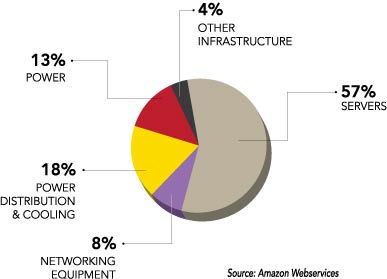Key Site Selection Criteria
Several key requirements are predominant in site selection projects overall, including:
- Labor costs and availability
- Highway accessibility and quality
- Proximity to major markets and customers
- Availability and cost of real estate options
- Amount of local and state economic development incentives
- Availability of telecommunications infrastructure
- Cost of utilities
- Tax and regulatory climate
- Proximity to suppliers
- Access to major airport
In addition to the general criteria considered by most projects, there are several factors that are specific to data center location projects, including:
Electric power: availability, cost, and redundancy - Data centers require a great deal of power to run equipment. Choosing a location with desirable electrical rates is an important factor. Access to more than one power grid will also enhance a potential location's profile. The maturity of the grid should be considered as well. Property tax rates - Property tax rates can have a profound impact on the location of a data center facility due to the capital-intensive aspect of this type of project.
Risk of natural disasters or weather events - Weather events and natural disasters - e.g., hurricanes, floods, tornadoes and earthquakes - have the potential to interrupt operations and are of great concern when locating data centers. Companies cannot afford to experience business disruptions due to a data center going down.
Construction costs and quality - Data center projects have the potential for high construction costs. Understanding those costs in different geographic areas is an important consideration during the site selection process. Telecommunications infrastructure: availability, cost, and redundancy - Since telecommunications infrastructure is critical to data center operations, redundancy of infrastructure and multiple carriers are vital to minimizing risk.
Quality of life - Data center employees are highly educated and enjoy higher than average annual salaries, and the quality-of-life factors are an important consideration in attracting and retaining these employees. Quality of life, albeit a minor factor in comparison to the need to lower overall operating costs, is considered more important in data center projects than in some other types of location projects. Among the considerations are housing availability, quality of educational and healthcare facilities, recreational and cultural amenities, as well as commute times.
As site selectors consider where to locate data centers, proximity to the corporate headquarters becomes less important and the special requirements of the data center itself become more important. The initial capital investment to construct and equip a data center, along with ongoing operating expenses (led by energy costs and property taxes) are significantly higher than for most other types of facility projects. This results in operating expenses being near the top of the list of site selection criteria.
According to a presentation outlined by online mega-retailer Amazon, an eight-megawatt data center could have more than 46,000 servers at a cost of $11 million per megawatt and a power cost of roughly 7 cents per kilowatt-hour. For every watt of power to run a server, another watt is being utilized in cooling power.
Across the United States, data centers consume as much as power as five million homes. A 50,000-square-foot data center - small in comparison to the hyper-scale data centers being utilized for giants such as Amazon, Google, Oracle, and Microsoft - can consume five megawatts of power or enough energy to power 50,000 homes. Google has reported using enough energy to power 200,000 homes, and its data centers around the globe are reported to draw over a combined 260 million watts of power.




